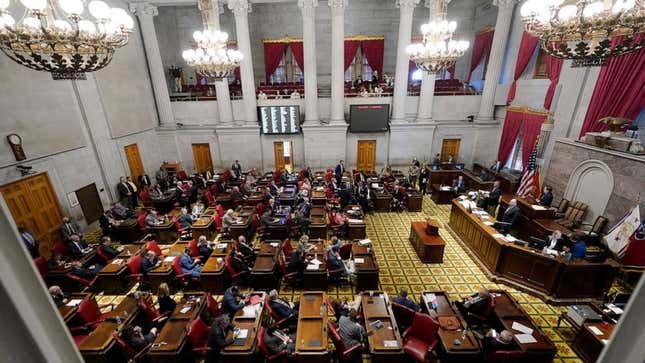
Republican-controlled legislatures around the country have been passing laws that mirror each other. They have been targeting issues concerning voting rights, Critical Race Theory, and abortion restrictions. The latest point of contention is what’s called “divisive concepts.” Georgia and Alabama have already set bills in motion to ban these teachings in the classroom. They usually include subjects about Black history and anything LGBTQ-based.
Tennessee is now the latest state to draw up legislative measures. According to ABC News, a Republican-backed bill that would allow students and staffers to sue public colleges and universities if they feel they’ve been unfairly punished for not accepting “divisive concepts” is about to become law. The state Senate passed the bill Monday. Before Gov. Bill Lee can sign the bill, the Tennessee House and Senate will have to work out how it will be enforced.
The measure would prohibit public colleges and universities from punishing students and staffers if they disagree with specific ideas and open them up to lawsuits if they violate the measure. Like many of the “divisive concepts” bills before it, there’s no clear cut definition of what can be interpreted to be a violation, as Sen. Jeff Yarbro points out:
“I don’t think what we’ve got in these definitions is exactly clear and I think what it does is invites conflict and invites challenge,” said Democratic Sen. Jeff Yarbro, who opposed the bill.
The House and Senate versions of the bills overlap in what they interpret “divisive concepts” are.
Both the House and Senate versions of the measure identify more than 15 “divisive concepts.” They range from declaring that “one race or sex is inherently superior or inferior to another race or sex” to “an individual, by virtue of the individual’s race or sex, is inherently privileged, racist, sexist, or oppressive, whether consciously or subconsciously” to “this state or the United States is fundamentally or irredeemably racist or sexist.”
Last year, Tennesee Republicans threatened to cut funding from schools they thought taught Critical Race Theory. This was just one of a dozen pieces of legislation signed by Gov. Bill Lee to prevent teachers from using critical race theory concepts in class.

